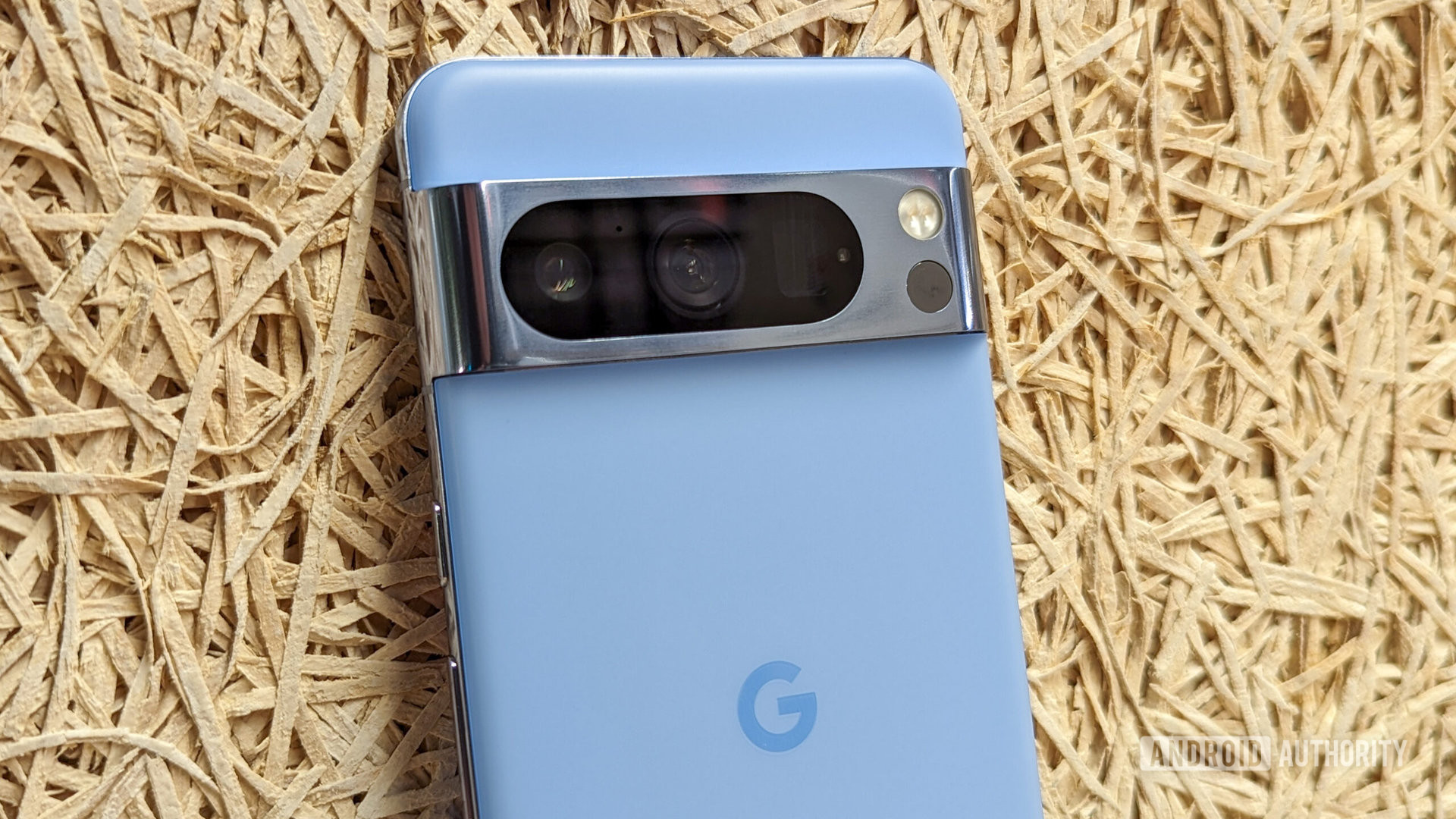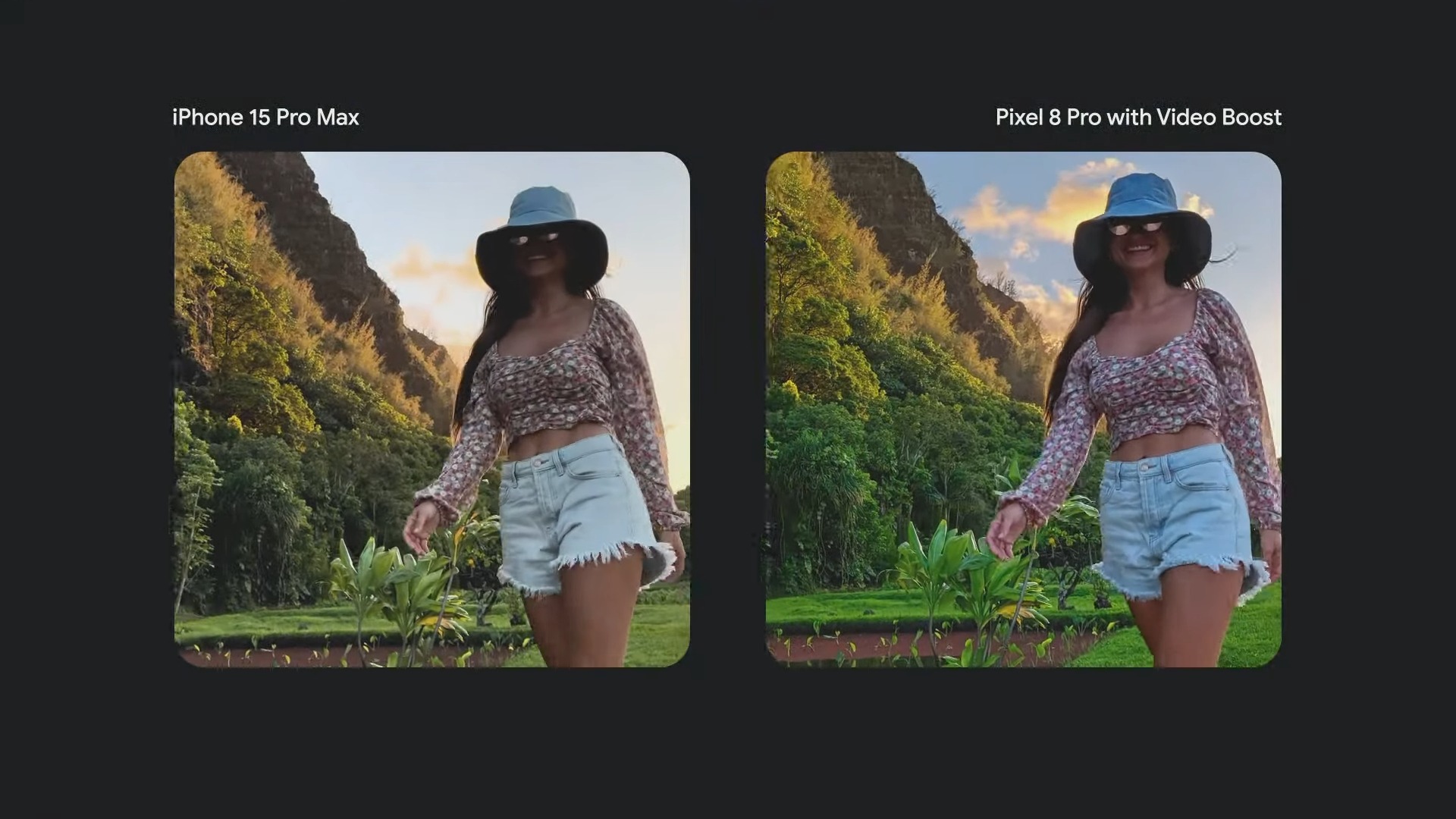[ad_1]

Rita El Khoury / Android Authority
TL;DR
- Google says the cost of cloud infrastructure is one reason why Video Boost is restricted to the Pixel 8 Pro.
- The company has hinted that the feature might eventually come to the standard Pixel 8.
The Pixel 8 Pro has several cool AI features, and Video Boost is one of them. It uses Google’s superior cloud processing infrastructure to process each frame of a 4K video recorded by the phone and adjust its color, lighting, stabilization, and graininess. It also enables Night Sight Videos for better low-light video quality. The result, as Google says, should be more vivid, true-to-life videos.
In an interview with Android Authority, Google explained that part of the initial processing for Video Boost is done by the Tensor G3 chip on the Pixel 8 Pro. The video is then offloaded to the cloud to handle the rest of the processing heavy lifting. But if that’s the only criteria for how Video Boost functions, surely the Pixel 8 should also have had the feature. Unfortunately, that’s not the case. Video Boost is currently exclusive to the Pixel 8 Pro, and for good reason.
“We’re still figuring some elements of that particular feature, and so we felt that given what it accomplishes and what it’s giving to our users, we start at the top of our portfolio,” Soniya Jobanputra, Director of Product Management at Google, told Android Authority.

She went on to confirm that the cost of the cloud infrastructure required to run Video Boost processing is one of the reasons why the feature is restricted to the top-of-the-line Pixel 8 Pro right now. Google could have charged Google One subscribers for access to the feature, we said. However, we were told the company has no plans to do that right now.
The executive did hint that the Pixel 8 might eventually get Video Boost support. “We want to learn from our users, gain some feedback, as we modify and build that experience (Video Boost), and it finds its way eventually throughout,” she said.
It’s unclear if the feature will make it to older Pixels, like the Pixel 7 series, in the future. But it seems unlikely since Google says it requires the specific processing powers of the Tensor G3.
[ad_2]